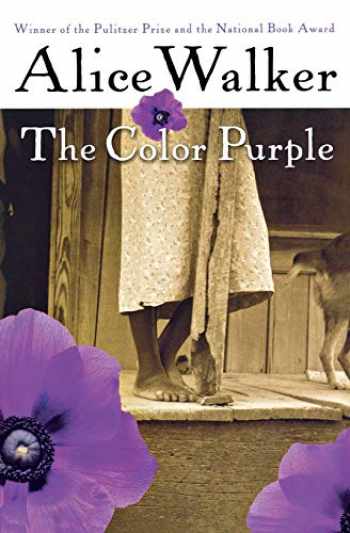
She successfully thwarts his assault with a strategically targeted blow to the nether regions. Attempted Rape: Mister tries to force himself on Celie's sister Nettie (soon after she came to live with them to escape her own father's repeated attempts).Eleanor Jane, daughter of the town's mayor (who appears only in the novel), also invokes this trope as she is instrumental in reuniting Sofia and her estranged children, to help make up for the oppression her family has imposed upon African-Americans.arranges for Celie's children to visit America. The Atoner: Emphasized in the film when Mr.And Introducing: This marks the first film for Whoopi Goldberg.She attempts to atone for her part in the unjust treatment of Sofia by caring for Sofia's daughter Henrietta, and is the one who reunites Sofia with her family, eventually leading to the She's Back moment described below. She is the sole white character who gets an inkling of the injustices Sofia and other blacks have suffered. Adapted Out: The mayor's daughter Eleanor Jane.During an early scene he's chasing his son Harpo around, attempting to whip him with a belt. Abusive Parents: Pa Harris beats, orders around, and sexually abuses Celie.They help Celie find the strength to become her own woman throughout the thirty years the story takes place. Fortunately, Celie finds friends in Mister's old flame, Shug Avery, and Sofia, the strong-willed wife of Mister's son Harpo. Her "Pa" then forces her into a marriage with "Mister," a widower far more interested in Celie's younger sister, Nettie. When we first see the protagonist, Celie, she's fourteen and twice pregnant by her father.


It also contained the film debuts of Whoopi Goldberg and Oprah Winfrey, and matched the record set by The Turning Point in 1977 for receiving the most Academy Award nominations note 11, even with Spielberg not being nominated for Best Director without a single win. The film was directed by Steven Spielberg, and marked a turning point in his career for being his first pure drama film, a departure from the Summer Blockbusters he had grown synonymous with, and one of few films of his not scored by John Williams. The novel won the 1983 Pulitzer Prize for Fiction and the National Book Award for Fiction, and was later made into a 1985 film and a 2005 musical. The Color Purple is a 1982 novel by Alice Walker that depicts the lives of African-American women in early 20th-century rural Georgia, and the problems they faced (racism, sexism, domestic violence, poverty, etc.), through the eyes of a young girl named Celie Harris.


 0 kommentar(er)
0 kommentar(er)
